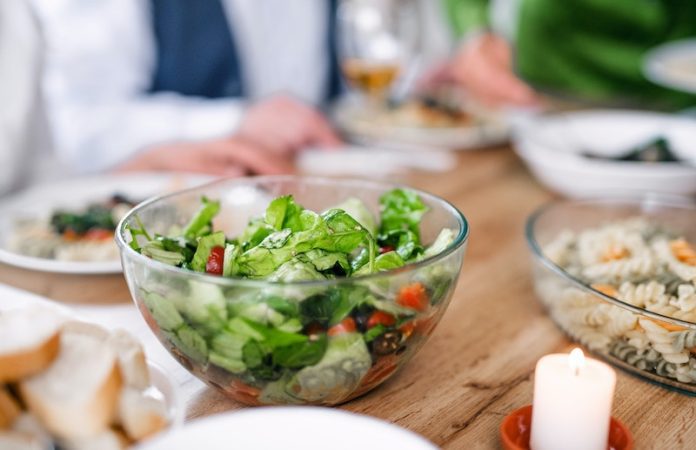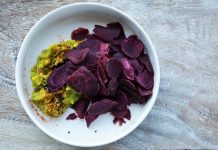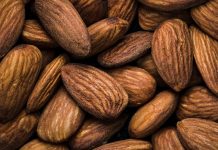
Hypertension, or high blood pressure, is a common condition that affects many people around the world.
It occurs when the force of blood against the walls of the arteries is consistently too high.
While medication may be necessary to manage hypertension, adopting a healthy diet can play a significant role in controlling blood pressure levels.
In this study review, we will explore the research evidence behind nutrition tips for managing hypertension.
Understanding Hypertension
Blood pressure is the force exerted by blood against the walls of the arteries as the heart pumps it around the body.
Hypertension is diagnosed when blood pressure consistently measures at or above 130/80 mmHg. Uncontrolled high blood pressure can lead to serious health complications, including heart disease and stroke.
The Impact of Diet on Blood Pressure
The foods we eat can have a profound effect on our blood pressure levels. Adopting a healthy diet can help maintain blood pressure within a normal range and reduce the risk of hypertension-related complications.
Limit Sodium Intake
Excessive sodium consumption is strongly linked to high blood pressure. Reducing sodium intake is an essential step in managing hypertension.
Avoid Processed Foods: Processed foods, such as packaged snacks, fast food, and canned soups, tend to be high in sodium. Choose fresh, whole foods instead.
Read Food Labels: Check food labels for sodium content. Aim for products with lower sodium levels and avoid those with high sodium content.
Use Herbs and Spices: Flavor your meals with herbs, spices, and citrus juices instead of relying on salt for seasoning.
Increase Potassium-Rich Foods
Potassium is a mineral that helps balance sodium levels in the body. Consuming foods high in potassium can help counteract the negative effects of sodium on blood pressure.
Fruits and Vegetables: Bananas, oranges, strawberries, tomatoes, leafy greens, and sweet potatoes are excellent sources of potassium.
Legumes: Foods like beans, lentils, and chickpeas are not only rich in potassium but also provide fiber and protein.
Dairy Products: Low-fat or non-fat dairy products, such as milk and yogurt, are good sources of potassium. Choose options without added sugars.
Embrace a Balanced Diet
Following a balanced diet that includes a variety of nutritious foods is essential for managing hypertension.
Whole Grains: Opt for whole grain products like whole wheat bread, brown rice, and oats. They provide fiber and essential nutrients that support heart health.
Lean Proteins: Choose lean protein sources such as skinless poultry, fish, beans, and tofu. Limit consumption of fatty meats and processed meats.
Healthy Fats: Include sources of healthy fats like avocados, nuts, seeds, and olive oil in your meals. These fats support heart health and can help manage blood pressure.
Limit Added Sugars: Excess sugar consumption has been associated with high blood pressure. Limit your intake of sugary drinks, candies, and desserts.
Maintain a Healthy Weight
Maintaining a healthy weight is important for managing hypertension. A balanced diet combined with regular physical activity can help achieve and maintain a healthy weight.
Portion Control: Be mindful of portion sizes and avoid overeating. Pay attention to hunger and fullness cues.
Eat Mindfully: Slow down during meals, savor each bite, and listen to your body’s signals of hunger and satisfaction.
Stay Active: Engage in regular physical activities you enjoy, such as biking, swimming, or dancing. Aim for at least 60 minutes of moderate-intensity activity per day.
Limit Alcohol Consumption
Excessive alcohol consumption can raise blood pressure levels. If you choose to drink alcohol, do so in moderation.
Moderate Drinking: For individuals under the legal drinking age, abstaining from alcohol is strongly recommended. For adults, moderate drinking means up to one drink per day for women and up to two drinks per day for men.
Managing hypertension through nutrition is an important aspect of maintaining a healthy heart.
By following these simple nutrition tips, such as reducing sodium intake, increasing potassium-rich foods, embracing a balanced diet, maintaining a healthy weight, and limiting alcohol consumption, we can take control of our blood pressure levels and promote overall well-being.
Remember, small changes in our eating habits can have a significant impact on our health in the long run.
If you care about high blood pressure, please read studies that early time-restricted eating could help improve blood pressure, and coconut sugar could help reduce blood pressure and artery stiffness.
For more information about blood pressure, please see recent studies about added sugar in your diet linked to higher blood pressure, and results showing plant-based foods could benefit people with high blood pressure.
Copyright © 2023 Scientific Diet. All rights reserved.








